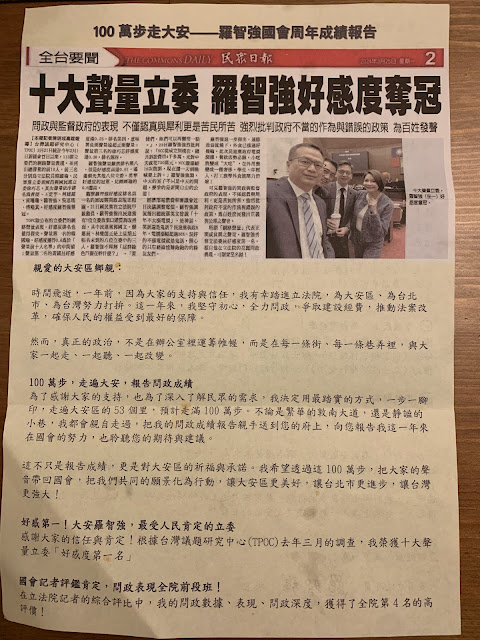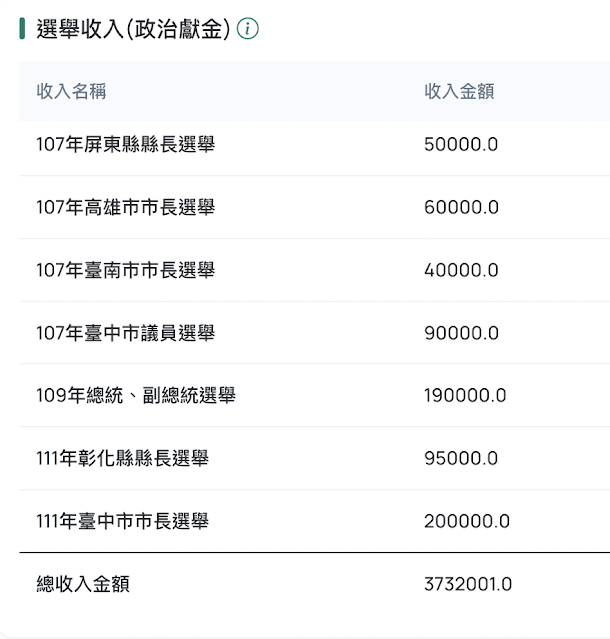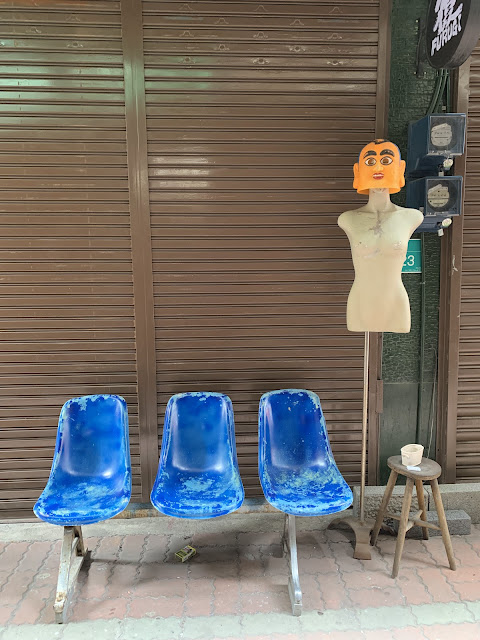As we rounded the boot of Italy, I cleared my plate of mostly Mediterranean-style grilled vegetables — eggplant, bell pepper, zucchini, tomato, all with visible sear marks but barely seasoned — and went back for another. I wasn’t sure if I was still hungry, but I heaped this fresh plate, still warm from the dishwasher, with more vegetables, cheeses, focaccia, cured meats. They made a real effort to offer some food representative of the region we were sailing through.
And to be honest, I could have eaten more.
They weren’t empty calories. Most of the food on our cruise was acceptable, if you ignored the “soft tortillas” that had been sitting under a heat lamp for so long they’d baked into a hard mass, the sugar-free iced tea that tasted like dirt or the watered-down coffee with nowhere near enough caffeine. You can get real coffee on a cruise ship, but you have to pay for it.
And yet, even with attempts at healthy choices, I just kept feeling hungry. I ate and ate, and wanted to eat some more. I could have just about anything I wanted, but none of it quite filled me up.
Talking about a Mediterranean cruise might seem like an odd choice for a Taiwan-focused blog, but I do think it’s relevant. Lao Ren Cha is intentionally named to represent a very slow brewing process, a take-your-time opening of the tea leaves: I’ve lived in this country for almost two decades, I am mostly self-taught in Mandarin (not perfectly, but well enough), I’ve visited every inhabited outlying island and spent time in every county on the Taiwan mainland, but I can’t say I fully and deeply understand Taiwan. There’s always more to learn.
My husband and I travel this way as well, or try to. My dream vacation is to find a tiny slice of a place and explore it as deeply as time will allow. I want at least two full days in any given city, even the “boring” ones. In fact, that’s usually not enough. Two weeks just for eastern Java? About the same for Georgia? Two months in Turkey? All wholly insufficient.
So why take a cruise stopping in five countries over ten days — Italy, Malta, Greece, Montenegro and Croatia? Would that not be far too little time in any one place?
We did it because it was the best way to organize a family trip with my in-laws, who prefer cruises, and my brother and sister-in-law, who don’t mind them. The in-laws have traveled our way (over land, spending more time in each place) more than once to spend time with us. It’s our turn to try their way. I was happy to do it. I still am. It might also be our last trip before WWIII or the resource wars break out.
The port calls were indeed too quick, though. In and out, Sicily in a day. Pompeii in half a day. Crowds pouring in, making destinations more unpleasant than they needed to be. I got the feeling most of the places we visited were a lot more pleasant after we left. Yes, we -- I'm not better than the other visitors.
I can’t say the tea leaves opened for any one destination.
I haven’t disliked taking a cruise, though. It’s easy to hop on a high soapbox or higher horse and say cruises are always terrible, or aren’t really traveling, or look like miserable trips for miserable people. It’s easy to be a travel bougie and think that makes you better than the average tourist, but it doesn’t.
It took a lot of convincing to get me to go, though. I worried about all sorts of things: where does the poop go? How could the food possibly be good? Isn’t a cruise ship basically a massive environmental disaster? Do they treat the crew well?
The answers to these questions are complicated (except for the poop -- it's treated and dumped as 'gray water' in the open sea, away from conservation areas).
Environmentally, the fuel needed is questionable at best. It's a lot, but having seen the resources poured into and polliution pouring out of land-based tourist facilities, especially big resorts, cruise ships seem like they actually might be more efficient. No one who travels is entirely innocent, as airplanes are one of the worst polluters as well. If you travel, you pollute. But, there is a case to be made that cruises pollute more than other forms of travel.
Very little food is wasted: we see a lot of the same ingredients in different dishes. There are almost no single-use plastics. If passengers could be convinced to give up bottled water (also a problem in general, and not just with tourists), there would be none. Everything else is paper, wood or recyclable aluminum.
And the waste? It's not good.
Labor conditions for everyone but officers would generally be considered unacceptable in the West -- more about that later.
Knowing this, we still decided to do the trip. Spending time with family does matter, and with two older travelers who have done things our way on previous trips, it was a trade-off we were willing to make.
What about other people, though?
One friend who has money to burn says she prefers them because you’re almost completely disconnected from the world if you don’t buy the overpriced wi-fi package. If she’s on a regular trip, she can’t quite shed her workaholic nature. “But if people are trying to reach me but I’m somewhere between Barbados and Curaçao with no service, there’s not much they can do, and I won’t feel compelled to get any work done,” she once told me.
I agree with this wholeheartedly. We chose not to buy the wi-fi either, thinking a digital detox would do us good. It has: we’re sleeping better, reading more and feeling more relaxed. I don’t even miss being on social media regularly.
It’s also easy to see exactly who cruises are for when, to put it bluntly, you look at who takes them. Our cruise was mostly older people, some families, and many disabled travelers. That is, people who’d spent their fittest years working and saved travel for retirement: anyone can arrange a trip on their own if they really want to, but it gets harder to lug backpacks or suitcases around as one gets older. For disabled travelers, it’s a lot easier to book a trip where you understand the accessibility in advance and won’t be surprised with a set of stairs you can’t climb, a long walk you can’t endure, or a set of meal options you can’t eat.
For others, it’s a way to keep kids happy and entertained — say whatever you want about how you’d parent differently, you don’t actually know what personality or needs your kid is going to have, or how difficult some kids can be until you try to travel with them. Another friend of mine did the full Mediterranean rigmarole because he and his wife wanted to see everything, they had plenty of money but not a lot of time, and their pre-teen son wasn’t interested in much of it. Cruise ships have options for situations like that.
Yet another friend who occasionally does cruises geared at families where one member has autism. It’s one way to travel while ensuring a predictable environment that may minimize, say, the chance of a meltdown.
Then there are the travelers who want a floating hotel room with excellent service that moves around, so they can visit lots of places. That, to be honest, is one of the most appealing draws of a cruise. You can unpack and stay unpacked. Also, to be blunt: the cocktails are very good and they don’t skimp.
And yes, there are the ones who have no special circumstances but want to say they’ve traveled but also desire it to be as safe and sanitized as possible: food they know they’ll eat, entirely predictable bus trips, services they know they’ll have access to. I know many ‘intrepid traveler’ types (the ones who call themselves “travelers, not tourists” without an ounce of self-reflection) who would dismiss this final group as unworthy of the beauty of travel, but honestly, that’s unkind. You really never know who a person is inside, or why they’ve chosen the safe option, or what experience might open them up to some new possibility. A lot of these ‘I am the very best kind of traveler’ folks might try to practice the non-judgmentalism they preach.
Still, I felt a bit out of place on what is essentially a massive floating Disney World where every staff member is helpful and friendly, and constantly asks if you’re having a good time. I always felt like I had to say it was great — magical, amazing, wonderful — even when it wasn’t.
Pompeii was a hot mess: herded through a “cameo factory” that was more of a glorified souvenir shop with a bathroom you could use, then racing through the ruins, seeing this and that, half a fresco maybe, the infamous phallus on the sidewalk pointing to a brothel. With thirty or so people in your group surrounding you, a little radio in your ear so you could hear the guide, sunglasses and a sun hat, every one of my senses was being assaulted and I didn’t really see anything.
In 2018, I took a train from Rome with my sister. We wandered around Pompeii at our own pace and used Google to figure out what things were. We found entire rooms with the paint intact, and talked about what we were seeing or just interesting things in life. When we felt we’d feasted enough on what Pompeii had to offer, we caught the train back to Napoli for pizza, and then on to Rome.
That 2018 Pompeii visit was better, and it's not close.
Others on our our said Sorrento was “wonderful” — were streets of souvenir shops all they wanted? Should I judge them for that? I felt I could have really liked the town if I’d gotten an Airbnb outside the “historical” (tourist) district and spent a week, not 90 minutes.
The tour guide for this trip was a nice guy named Sal who clearly had a nasty cold and wanted nothing more than to be at home drinking restorative hot beverages while watching crappy TV and waiting for the meds to kick in.
“But I have to work, you know,” he said as I handed him a BronkAid.
I’m not sure how I feel about propping up that kind of economy.
Things improved on Mt. Aetna: it’s harder to get to, so a tour made sense, and the crater was truly impressive. What the excursions call “time on your own”, however, usually turned out to be 1-2 hours in a town, not enough to both eat and walk around (lunch is not usually provided, so you really must eat, and often the only eateries you have time to walk to are tourist traps with awful food). In Sorrento we gulped down an overpriced meal and then tried to walk around, only to find street after street of souvenir shops.
In Catania we decided to forgo the whole tourist trap nonsense. We had an hour, and there was no reasonable way to have fun in any city with that little time. I had data on land, so I hopped online and found a highly-rated restaurant where we lunched in a sun-drenched courtyard filled with just the right amount of Sicilian chaos. We had salty olives and horse steaks (yes, horse). I had home-made rigatoni so massive it flopped over, covered in a savory pistachio cream sauce and guanciale. Six euros for a half liter of white wine, and the most delicious little chocolate thing I’ve ever shoved in my face hole.
The salty olives mattered: nothing on the ship is sufficiently salted. I felt like the sultan in that old Arab fable about three daughters, where the third showed her love by bringing her father salt. He thought it was a worthless gift until he tried living without it — he was so miserable, his food so tasteless, that he proclaimed he’d give his kingdom for a few flakes of it.
My kingdom, for some salty fucking olives in the Mediterranean, of all places.
We left stuffed, but had to run back to meet our tour group. That one meal was the only thing we had time for in urban Sicily, and we had to leave before doppio espresso or grappa had even been a possibility. The Sicilian family running the place seemed confused about why we cut out so quickly; they didn’t seem to get a lot of cruise ship daytrippers.
I didn’t get a lot of Sicily, but that meal will stay with me, on my hips and in my mind. On the ship I can get anything I want, but actually spending time on land in a place, I may get what I need.
Once we stopped doing lots of excursions, my experience became dramatically more interesting. Malta and Crete were outstanding, because we were just a family walking around and having fun. That togetherness, not endless group tours, is what I wanted and needed from this trip. The Montenegro bus trip was only somewhat chaotic, and I ended up loving Kotor itself.
One of my favorite things to do in Europe is find a pretty cafe in a quiet lane and watch the world go by over a Campari spritz (an Aperol spritz is fine, but Campari is better). Nobody needs this exactly, but it’s my favorite kind of travel. I can have as many spritzes of any liqueur that I’d like on the ship. I don’t dislike being on the ship. But a Campari spritz at one of the bars isn’t quite the same as sipping it in a travertine-bricked, vine-covered cafe in some corner of Rome. It’s the same drink, but somehow less filling.
The other thing the ship has is a massive staff. They’re from around the world, but mostly the “Global South”, if you like that term. I don’t, but can’t put my finger on why. It reads as condescending. The large proportion seem to be from the Philippines. They all work very hard to keep every guest happy — if you even hint that you want something, the nearest worker will drop everything to help.
This creates a very comfortable experience which makes me a little uncomfortable. These are probably considered very good jobs, and people need jobs. The idealist in me cries out that nobody should have to work as support staff — servants, basically — to keep a gaggle of white, mostly American, travelers happy and sated. The realist in me wonders what exactly would happen if those jobs didn’t exist. It’s easy to say “socialism would fix it!!” but that’s insanely non-specific and none of the praxis for it has worked so far.
Because a cruise ship is pure distilled capitalism, upsells and “events” mostly designed to entice you to spend money are common. It’s just as infuriating as the low-caffeine coffee.
As for my fellow ship-mates, they are mostly quite friendly. But as we’re being herded out to excursions, I feel like we’re all doughy cattle (yes, myself included) mooing and grunting off to truncated experiences. Some of them talk loudly about how “President Trump is stopping those illegal immigrants from coming over and getting free health care!” I want these people to see more of the world, but they seem happy with just one day. Not even a day: an hour here, an hour there. I doubt they’re learning much.
After Sicily, I soaked in one of the indoor hot tubs for awhile. A woman joined me; I learned quickly that she was Peruvian and spoke only Spanish. I marginally speak something that passes for half-remembered high school Spanish, which I picked up because my French teacher saw potential in my autodidactic language learning. We still chatted for about half an hour, don’t ask me how. This was her first cruise, and she was loving it — she explained that she was a bit shy to try to communicate across language barriers (I am not), but tours were usually available in Spanish, and it allowed her to visit lots of non-Spanish speaking countries.
Doing insane charades (don’t ask how I explain problems like a yeast infection) to negotiate meaning with people with whom I share not even a word doesn’t scare me, but who am I to judge those for whom that’s a real barrier to travel?
On our voyage I also kept running into a small group of well-tailored Filipina lesbians. The maitre’d at the dining room always greeted them with a compliment. After this, I noticed that my shipmates included not just older and disabled travelers, for whom the accessibility options on a cruise are a godsend, but a fairly large cohort of LGBT+ passengers from around the world. I imagine it must soothe some to know that they always have welcoming accommodation as they see the world.
We saw my husband's parents in their most relaxed state, which for them doesn’t include carting luggage to a series of hotels rooms, and it was wonderful. For various reasons, this may be our last family trip for awhile, and I valued it.
I'm also getting a bit of what I want: I started this trip by working remotely from my sister's apartment in London. I got to drink Campari spritzes in various Rome neighborhoods, and again in many other ports. We bookended the cruise with a few days in Rome and a few in Ljubljana, giving us time to see more of both cities.
My intention is not to lay down a polemic about cruises. It’s not my preferred mode of travel, but I may take one again. There are true upsides: you do see a lot of different places. If you truly want to explore any one of them in-depth, it might plant a seed to encourage you to come back on your own. They go to places I doubt I’d ever make it to on my own, from the Shetland and Orkney islands to the tip of South America. That trip gives you just one day in Ushuaia, but that’s one more day than I’d be likely to get otherwise.
After Sicily, the port calls improved. We wandered around Valletta, Malta, eating rabbit stew for lunch and sending the in-laws back to the ship when they were ready to take a rest. I had my Campari spritz in an outdoor European cafe and followed them. We did much the same in Crete. The scenic drive in Montenegro was a bit of a mess, but everyone enjoyed the prosciutto, cheese and wine. As we approach Croatia, I’m a little sad that it’s coming to an end.
People often ask why I’ve stayed in Taiwan so long. What am I even doing there? I don’t know. All I can say is that it doesn’t always give me what I want, but that slow process of understanding and partially (never entirely) integrating into the local language and culture, and contributing to the best of my ability so that I’m a net positive as a presence there, is the sort of slow-brewed tea that gives me some ineffable thing I need.
On the second to last day of our trip, I was having trouble falling asleep and wanted some hot tea and fresh air. I threw on a sweatshirt and headed up to the buffet, where there was no food at such a late hour, but tea and coffee were always available. I took my mug of herbal tea, perhaps a brewed a little quickly but still satisfying and walked around the exterior upper decks of the ship. People were still hanging out in the closed bars, or watching Jurassic World on the Lido Deck. Different music played in each, some areas lit up, others darkened. A basketball game going on somewhere I couldn’t see. It was a little surreal.
Somewhere in my ramblings, I came across a dark side deck full of stargazers. A crew member had distributed headphones with an audio guide about the constellations. I arrived late and didn’t take one, but standing in a throng of silent shipmates, heads turned to the sky like churchgoers in a late-night Adriatic fever dream, I saw that there is indeed more to do on a cruise ship than eat mediocre food and get herded onto tour buses. I could also sit in the middle of a wine-dark sea and look at the heavens.
I sensed a new dimension of what it means not to judge. This doesn’t extend to the guy who wouldn’t stop lying about “illegals” getting free healthcare, but to everyone else, I get it. And I hope that one guy finds a better emotional support villain to blame for his unhappiness.
I don’t care about Jurassic World, but you do. That’s great. I think we don’t spend nearly enough time in each destination, but you think the excursions are too long. You want a bus to take you everywhere, or maybe you need that for accessibility reasons. It’s not my first choice, but okay! It doesn’t quite fill me up — I’ve left each destination feeling like I could have spent a week or more there — but it’s also more than empty calories.
It’s easy to extend ‘to each their own’ to people whose choices we can on some level understand. It’s a lot harder when nothing about your preferences align with theirs, or you’ve forgotten that people have constellations of reasons why they don’t want to or simply can’t travel the way people like me might prefer. It's extremely easy when you don't hold yourself accountable for the ways you pollute and tolerate poor working conditions, or worse, think you've solved the problem of ethical consumption in your own life. I promise, you haven't.
I didn’t always get what I wanted on the Majestic Princess, but even though it’s the exact opposite of slow-growing roots in a new country over decades, I got something I needed there too.


















